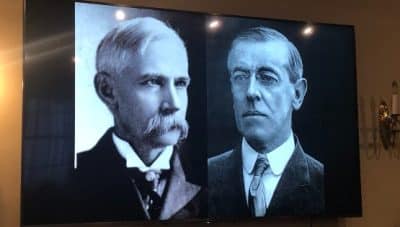
In October of 2013, the U.S. Energy Information Administration reported that 90% of homes were expected to have higher heating costs this winter as compared to last year. Utility costs are consuming an increasing amount in household budgets at a time when the U.S Census Bureau shows that the median household income is decreasing, and is lower than it was over 10 years ago. For families across Virginia, it’s no exception.
Although there are practical steps families can take to help bring down the cost of heating bills, like lowering the thermostat at night and opening window blinds to sunlight during the day, these steps will only go so far in keeping costs down over the long term. There are also steps Washington can take to reduce energy costs.
Winters like this one show us that limiting the use of an affordable energy source drives energy prices up significantly. Existing policies that restrict domestic energy production make it difficult to cheaply deliver energy to American families. Yet every year, projects that would increase the availability and efficiency of natural gas are often stalled or canceled because of lengthy review and permitting processes. Similarly, federal permitting processes make it cumbersome to open new power plants that help provide electric heat. As a result, we lack an abundance of energy supplies.
At a time when families are relying on more energy to heat their homes, our goal needs to be a diverse energy portfolio that effectively uses coal, natural gas, nuclear, renewable (such as sun and wind), and oil. Last week, the House of Representatives considered several bills to address our energy challenges with a goal of helping bring down costs for energy consumers while working toward an all-of-the-above energy solution. Here are some ways those bills are helping residents who rely on natural gas, electric heat, and propane to heat their homes:
For homes relying on natural gas or electric heat…
According to the U.S. Energy Information Administration, almost half of all homes in America rely on natural gas. If you are one of them, you know that prices are up as much as 13% this year. Likewise, if you are one of the 39% of homes that utilize electric heat, you know energy costs have been significantly higher for you, too.
The House passed, with my support, the Responsibly And Professionally Invigorating Development (RAPID) Act to improve the environmental review and permitting process for energy resources. The bill would expedite federal approval of construction projects, including energy and natural gas infrastructure, to create more abundant energy supplies. Additionally, the House passed the Electricity Security and Affordability Act to protect coal electric utility plants from an excessive EPA regulation. Instead, it guides the EPA towards creating new, achievable standards.
For homes relying on propane…
Homes that use propane have seen an increased cost of 9%, and shortages compared to this time last year because of insufficient infrastructure to quickly bring propane to high-demand areas.
To address this issue, the House passed, with my support, the Home Heating Emergency Assistance Through Transportation (HHEAT) Act to make it easier to transport propane to areas with shortages. Additionally, I joined 73 members of Congress in sending a letter to President Obama requesting he take immediate steps to alleviate the propane supply shortage. The letter expresses concern that any further reduction in supply could impact the ability of Americans to heat their homes and businesses.
We have a lot of opportunity ahead of us to create an energy infrastructure that is innovative, resourceful, and well equipped to take our nation far into the 21st century. These are small steps on that path, but still significant in bringing some relief to families when cold winter months hit.










